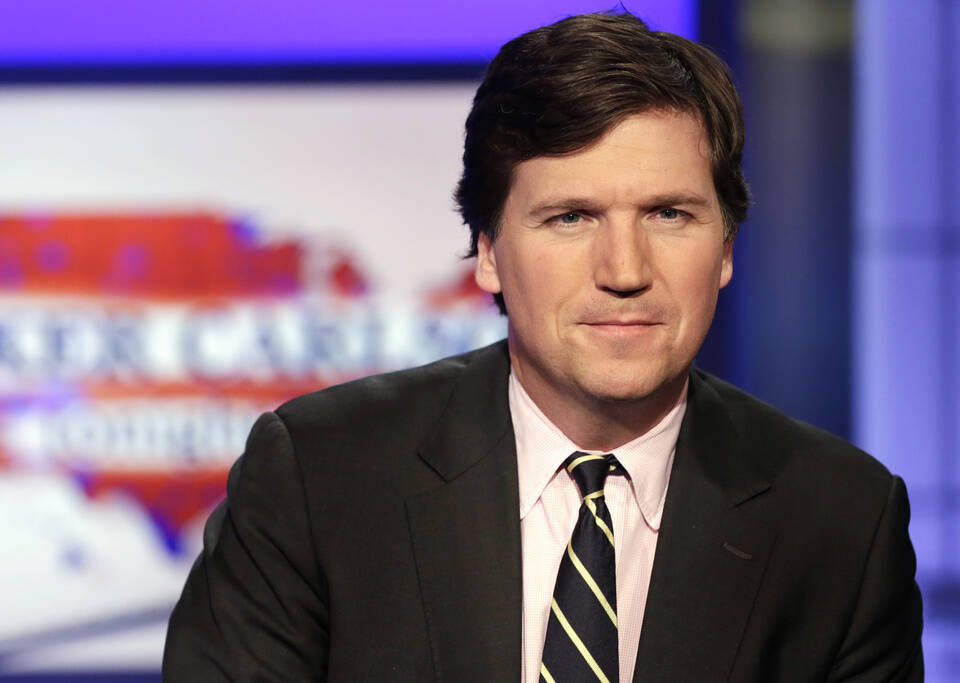In September 2021, long before the media world was stunned to learn that Fox News was parting ways with highly rated primetime host Tucker Carlson, he sat down with Megyn to discuss his upbringing and career trajectory, which – as it turns out – included quite a few tough times.
In episode 167, Megyn and Carlson, who is now releasing new content on Twitter as he resolves his contract dispute with Fox News, discussed the early career mishaps that shaped him and why it is always your fault.
Tucker Carlson’s Early Career Failures
Before Carlson was a successful commentator and household name, he was, in his words, “the product of a lot of failures, and unhappiness, and suffering.” Such situations befall everyone to some degree at some point, and Carlson said we all have the ability to choose how to deal with it. “Unexpected things happen in your life and you either become much improved, and you understand yourself more deeply, and you’re calmer,” he explained. “Or the opposite happens and you become crazed and nasty.”
Carlson began his broadcast career with a good run at CNN. “I was pretty successful young,” he shared. “I got on TV in my twenties, and I think it made me into kind of a jerk.” What does Carlson credit with getting him back on track? “The only thing that saved me was failing and being humiliated – like really humiliated, where your neighbors avert their gaze when you pull into the driveway at night kind of thing.” According to Carlson, everybody “hated” him. Even so, “it really was the best thing that ever happened to me.”
After CNN, Carlson had a rocky tenure at MSNBC before flourishing at Fox News. He told Megyn that he “failed” at the network. “I went to MSNBC, and… I was the primetime anchor… next to Keith Olbermann,” he recalled. “And I failed in the most basic way – I got bad ratings.” He admitted it’s “kind of hard to evade responsibility” for the lack of viewers. “You can sort of blame other people, but, in the end, if you’ve got a TV show and your job is to get into as many living rooms as you can and you fail, it’s kind of your fault,” he noted.
While Carlson said it may have been easy for him to say MSNBC “screwed me over,” the “truth” is that shortcomings of the show were on him and he got fired for it. “I was lazy and entitled, and it set off this chain reaction,” he said. That “chain reaction” included financial instability. “I’ve never been good at money,” he shared. “I looked around and I was like, ‘Oh, wow, I’m living this totally unsustainable life, and I’m not making any money.’” He eventually lost his home.
Three Moments that Changed Tucker Carlson’s Life
Carlson said he was able to pinpoint three moments that changed his life. For starters, “I struggled for years with drinking too much,” he shared. “I quit 20 years ago.” Next, “I got fired and completely ran out of money and had to sell my house out from under four kids,” he said. “That really changed my view of everything.” Finally, “I was in a plane crash 20 years ago next month,” he explained. “I obviously survived, but those were three really bad things and each one of them completely changed the way I behave.”
He dove deeper into the situation with his home because, in many ways, it was an all-time low. “I had to sell the house, and I had a young family with four children and a wife,” he recalled. “It was a pretty low-grade disaster.” While the situation would be distressing regardless of the circumstances, Carlson said the “biggest shock” was that “it was completely my fault.”
Once he acknowledged that, he was able to move forward. “That really reoriented my thinking about everything – mostly about myself – and that’s sort of the root of my strength now,” he shared. “I could be broke again… and [I know I] can make it, so I was just grateful for that.”
Why It’s Always Your Fault
An underlying theme in all of these scenarios is accountability. Carlson has admitted in the past that he used to blame others for his failures until he realized: “It’s always your fault.” It’s a lesson he learned from a late friend who always used to accept responsibility for his role in disagreements. “The second I realized that it was my fault too, things got better,” he explained. “It’s always your fault, you can only control yourself, and, once you realize that, you can make things better.”
Megyn noted that she has tried to eliminate the word “unfair” from her vocabulary for similar reasons. “My life is the natural consequence of my own decisions – some good some bad – but I own them all,” she shared. “You become the sum of those parts.” If you look at your life and are proud of where you’re at, good for you. If you are not, Megyn concluded, “it gives you your motivation for the day.”
You can check out Megyn’s full interview with Carlson by tuning in to episode 167 on YouTube, Apple Podcasts, or wherever you like to listen. And don’t forget that you can catch The Megyn Kelly Show live on SiriusXM’s Triumph (channel 111) weekdays from 12pm to 2pm ET.


